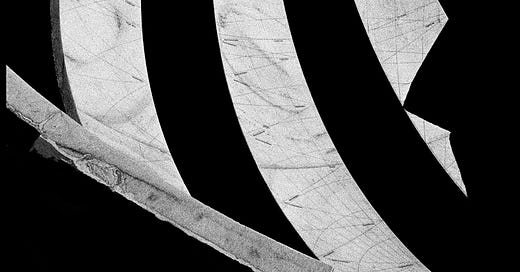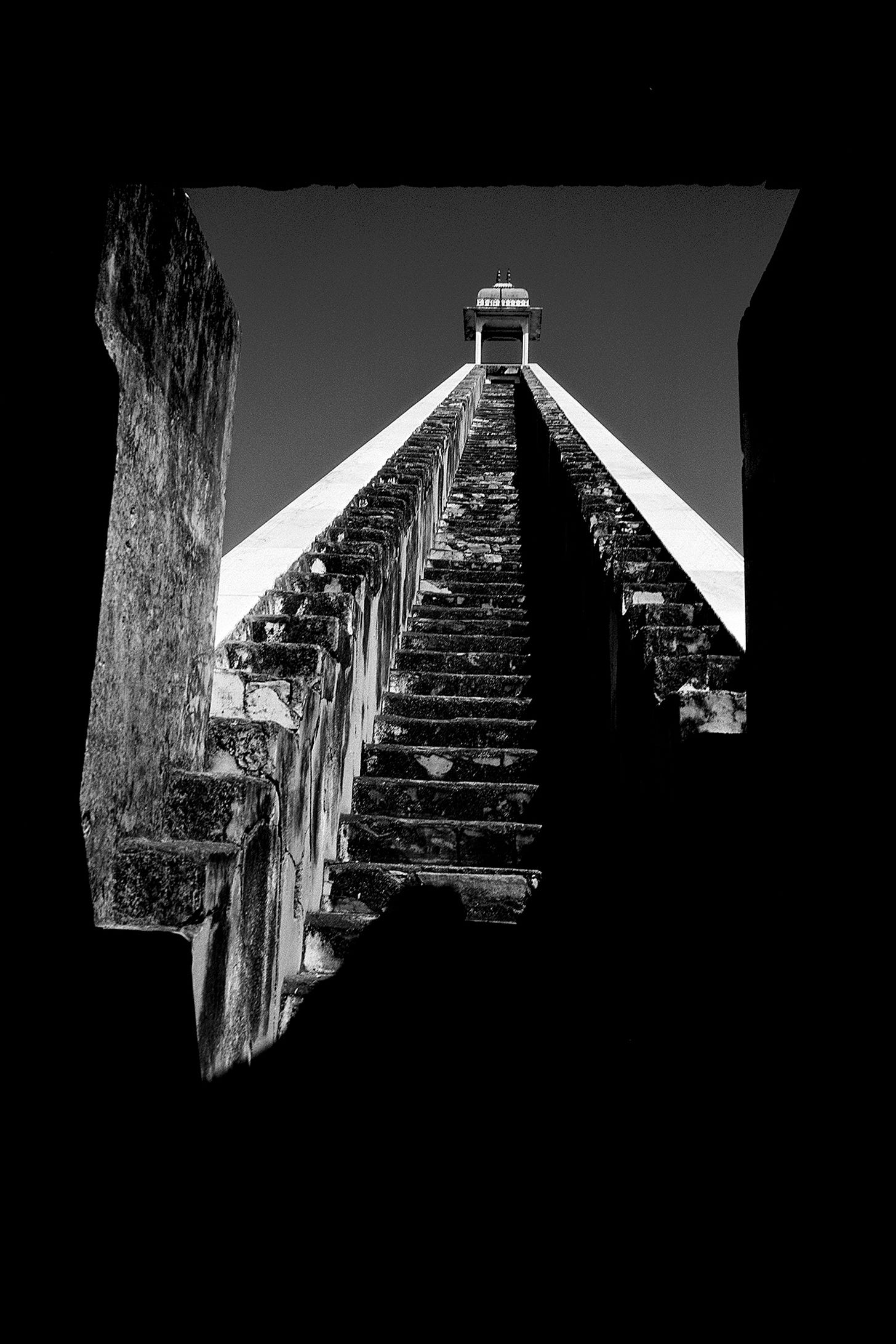I will capture the heavens, the king said. I will build homes for the stars and then they will be mine. They will not run from me, but be mine for ever more, like caged songbirds. But my star-homes will be the opposites of cages: the stars will look in through open windows, not out through imprisoning bars. If you build the right home, said the king, if the posture and attitude of the edifice is just so, the stars will look in through the windows, and then you will have them. My windows will be my nets. I will catch them in my windows, said the king, and on certain days at certain times they will come and talk to me. They may flee the rest of the earth but we will be joined, the stars and I. I will build palaces for the stars and by doing so I will become their ruler and they will tell me the secrets that only the stars know.
When you bring me a star to wear on my ring finger, said the queen, only then I will believe you have become the monarch of the skies.
He was a scientist, this king. He knew that if you wanted the universe to whisper its secrets in your ear you had to adopt the correct stance. You had to bend your ear to the frequency at which the stars spoke to one another. If you were still for long enough and if your attitude was correct, if you were ready to learn, then the stars would teach you. It was in this spirit that he built the structures that looked, to ordinary men, like madhouses, or broken wheels, or masks. They were made of brick with marble planes tilted to the skies and on these planes he made the marks that told the stars he understood their language. The stars saw the star script on the structures and told him the secrets of the skies, and all men thought him the wisest king of all.
There’s no star on my finger, said his wife with a shrug. Play the fool in your park of fool’s houses, she said. You don’t fool me.
Make an O with your thumb and forefinger, he told her that night. Yes, that’s good. Now hold it away from you at arm’s length, close one eye, and look through that O, which is a hole in space. Do you see your guiding star?
It’s bright, she said. I’ll grant you that. As bright as any diamond, but why is it mine?
I have named it for you, the king said. I cannot give you a star to wear on your finger but I can make you a star the heavens wear. Now every night when you look at the sky you will see there, right over your head, yourself as the jewel the universe wears on its brow.
She was silent.
Then she said, It isn’t what I asked for.
She thought some more.
But it’s better, she said. Truly you are the emperor of the air as well as the earth.
And you my empress, he said.
They climbed, hand in hand, to the top of the gnomon of the giant sundial and stood under the little cupola there, seventy-three feet above the ground. The mirrors of the heavens looked up at them, a twinned pair, one for each of them.
I want more, she said.
You have a crown on your head, the king said. There are treasure chests groaning in your private chambers. The whole land obeys your command and I have given you more than you asked for, by making you the very ornament of heaven. What more could you possibly want?
If there is a god up there, she said, I want him to kneel before me. If there is no god, then I must be a goddess.
He took a step away from her. The cupola was a restricted space and he felt a pillar against his back. Her greed filled the air between them and grew swollen until it seemed that there was no room for the royal couple, only for greed. He clung to the pillar nearest him, afraid of what she had said.
I am a man of science, he said. What I can see and measure and grasp, that is what I believe in. Yes, I have performed the horse sacrifice, as the Yajurveda specifies and the Rig Veda describes, but it is to astronomy that I truly bow down. The stars are my gods, even if they are cowardly gods, moving ever further from us, their subjects.
Hollow man, she said. Hollow as the O between my forefinger and thumb. I look at you through this O and I see empty space. You cannot give me what I want. You do not exist. You are a fiction, like the sky. Even now you are moving away from me at the speed of light. I will never allow you to lay a finger on me again.
In one version of this story, once the queen had so spoken, her greed ballooned to fill the cupola and pushed her out, and she fell seventy-three feet to her death. In another version the ballooning greed is not mentioned, but it is said that as she left the king up there and descended, the gnomon itself seemed to become insubstantial, undulating, dangerous, and she, dizzy, lost her footing, and tumbled down the long narrow stairway and so perished. In yet a third version the queen is not described as greedy, and the couple lived long and happily ever after. It seems probable that none of these versions are true, and that the man of reason, the king, and his more superstitious, more demanding queen, continued to be married, as happily and as unhappily as most married couples are. And, as eventually happens to us all, the king died, and for awhile the queen continued to shine in the heavens by herself, until people forgot that the pole star had been named after her by a compliant husband, and it went back to its original armadillo-self, and that extinction, the expunging of her name from the record on account of the fallible memory of the human race, was the moment at which she really died; and was forgotten. And the universe went on racing away from the earth, further and further away, leaving us more and more isolated, more and more lonely and alone.






I believe a good story will provoke questions, thoughts, and dialog. Your story evoked all three responses for me. A major issue that presented itself via the discussion of the stars throughout the story was the fact that all perspectives on reality are relative or multidimensional, and ephemeral.
This notion is further amplified when one thinks about the perspectives on the King vs the Queen. The King could be considered as a clever scientist, who learned of the stars by studying them closely, and the Queen could be considered greedy and uninspired by demanding more. On the other hand, the King, who calls himself a scientist, could be seen as a dreamer who is not in touch with what is real, while the Queen could be viewed as a scientist, a rationalist, who demands proof of the existence of what the King is claiming and is a skeptic, as many Western scientists are.
The issue can be demonstrated on another level, when one thinks about the Western perspective vs the Eastern one. The Western one might be influenced by a more accepting view of women, while the Eastern one might be influenced by a more conservative one. Or the Eastern storytelling perspective might embrace the notion of the stars as expressed by the King, whereas the Western perspective might demand a what could be considered a more “realistic”, practical, material approach like the Queen did.
All in all, this is just one perspective. Whether it will make sense to others or not, I don’t know. What I do know is that this is an excellent story.
Thank you!
This reminded me a great deal of some of A. S. Byatt's more mystical short stories. The narrative is more distant but there is that same sense of a familiar yet disjointed mythos.